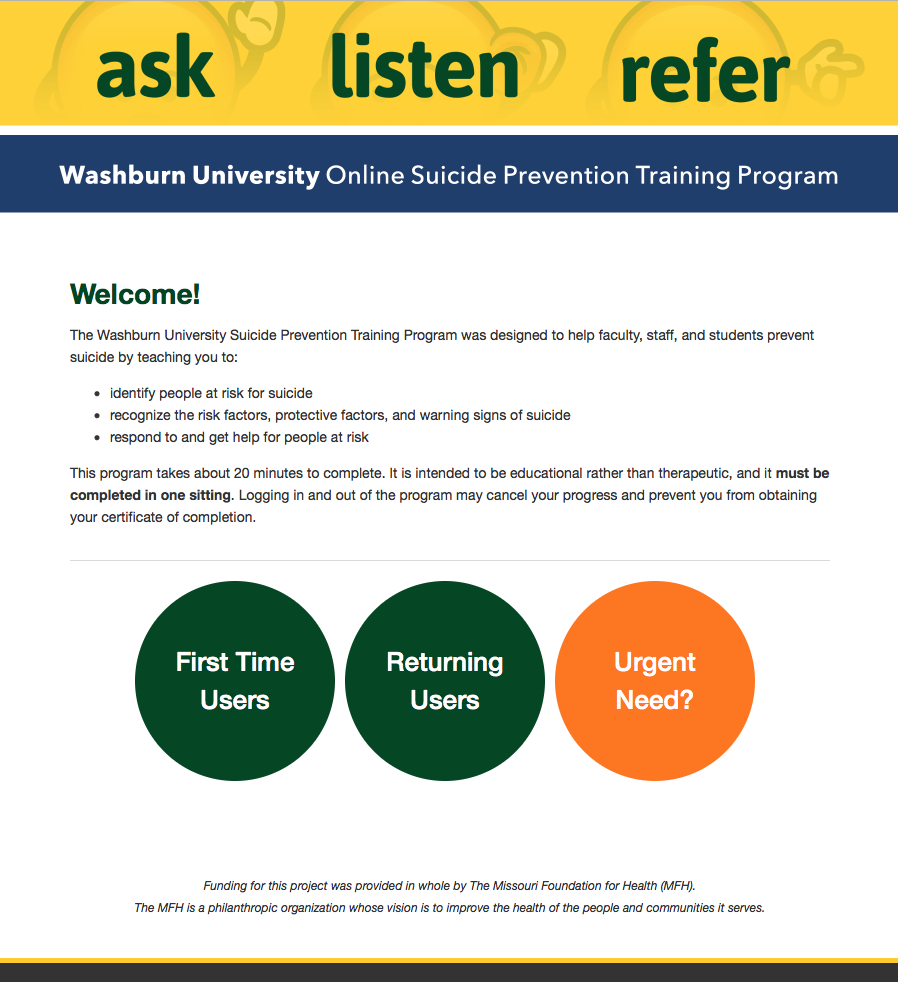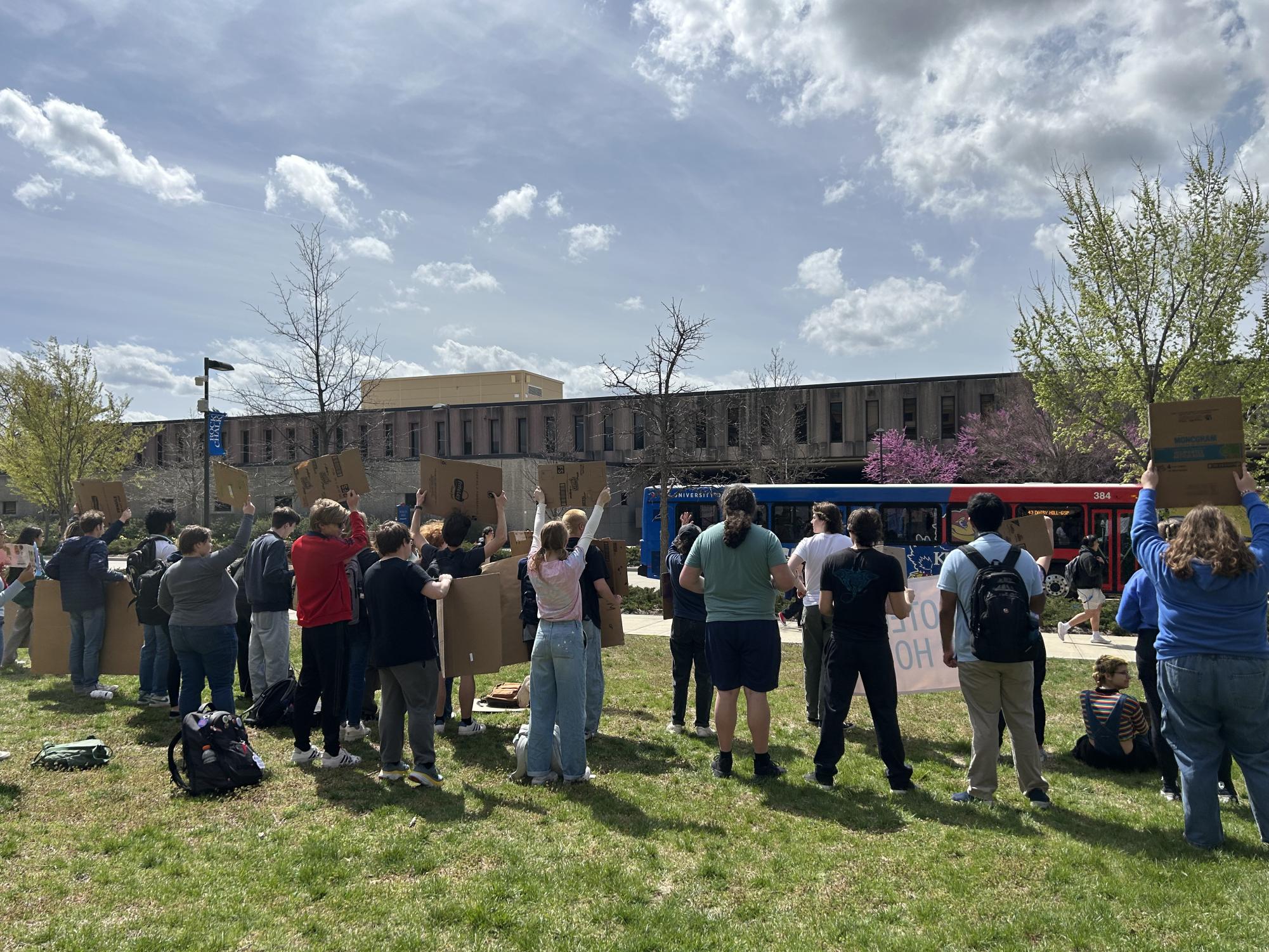Suicide prevention with WU’s new online training
A shift in values has allowed for a more open discussion about topics that affect our peers and how we can help.
Washburn is helping its students talk about hard issues, like suicide, with its online training program “Ask, Listen, Refer.”
“It’s an awesome program- it’s designed to help prevent suicides, so it gives us some great tools to recognize warning signs, and it gives us some of the risk factors for suicide,” said Emily Meyerhoffer-Kubalik, university counselor. “It also does well with talking about how we actually talk to people we’re concerned about.”
The course takes approximately 20 minutes to complete, and must be completed in one session. It is open to all students and faculty, and gives important lessons on suicide and factors leading up to it.
“I just did the training recently, and I thought it was really good. There was broad information, but there was also specific information relating to Washburn and the area,” said Katey Staatz, sophomore, psychology major, “It was really useful because on campus everybody can be affected, so knowing how those things directly apply is important.”
Starting off with hard-hitting statistics, the “Ask, Listen, Refer” program dives right in with its intention to educate. It includes numbers for college students, as well as other age groups.
According to the program, over 50 percent of college students have reported thinking about suicide at some point during their life, and during the 2015-2016 academic year, around 9.6 percent of college students reported “seriously considering” suicide.
The curriculum is very inclusive, as it stresses that some of the main risk factors can be enhanced in minority groups, veterans and members of the LGBTQ+ community.
“One of the strengths of the program is that it does allow us to get specific statistics on Washburn’s campus, so what our risk factors would look like based on statistics and stuff like that,” said Meyerhoffer-Kubalik, “We know that it’s happening, and we know that students and people in general deal with suicidal thoughts around us.”
Following the informational portion, the program goes over ways to reach out and help those that might be struggling with depression and suicidal thoughts. There are short videos outlining conversations and tips on bringing the subject to light.
“Being able to tie things together and know these risks is a huge benefit of the program,” said Staatz, “Being able to see this in other people, so maybe if they can’t come to you, you can instead come to them and be able to help.”
This program acknowledges that talking about this sensitive topic can be hard, but being prepared can save lives. There are resources available on campus and off, starting with counseling services and support systems. Training can help students be more prepared and comfortable with helping others through thoughts of suicide.
“I love this program because it applies for students, it applies for faculty and staff, we all work with people, so I think being able to have those conversations and recognize those warning signs is helpful for everybody,” said Meyerhoffer-Kubalik, “It’s okay to express concern for someone and ask that person if they’re okay or thinking about suicide.”
Your donation will support the student journalists of Washburn University. Your contribution will allow us to purchase equipment and cover our annual website hosting costs.












